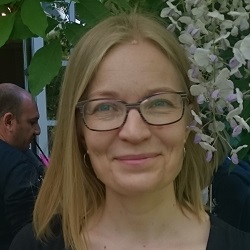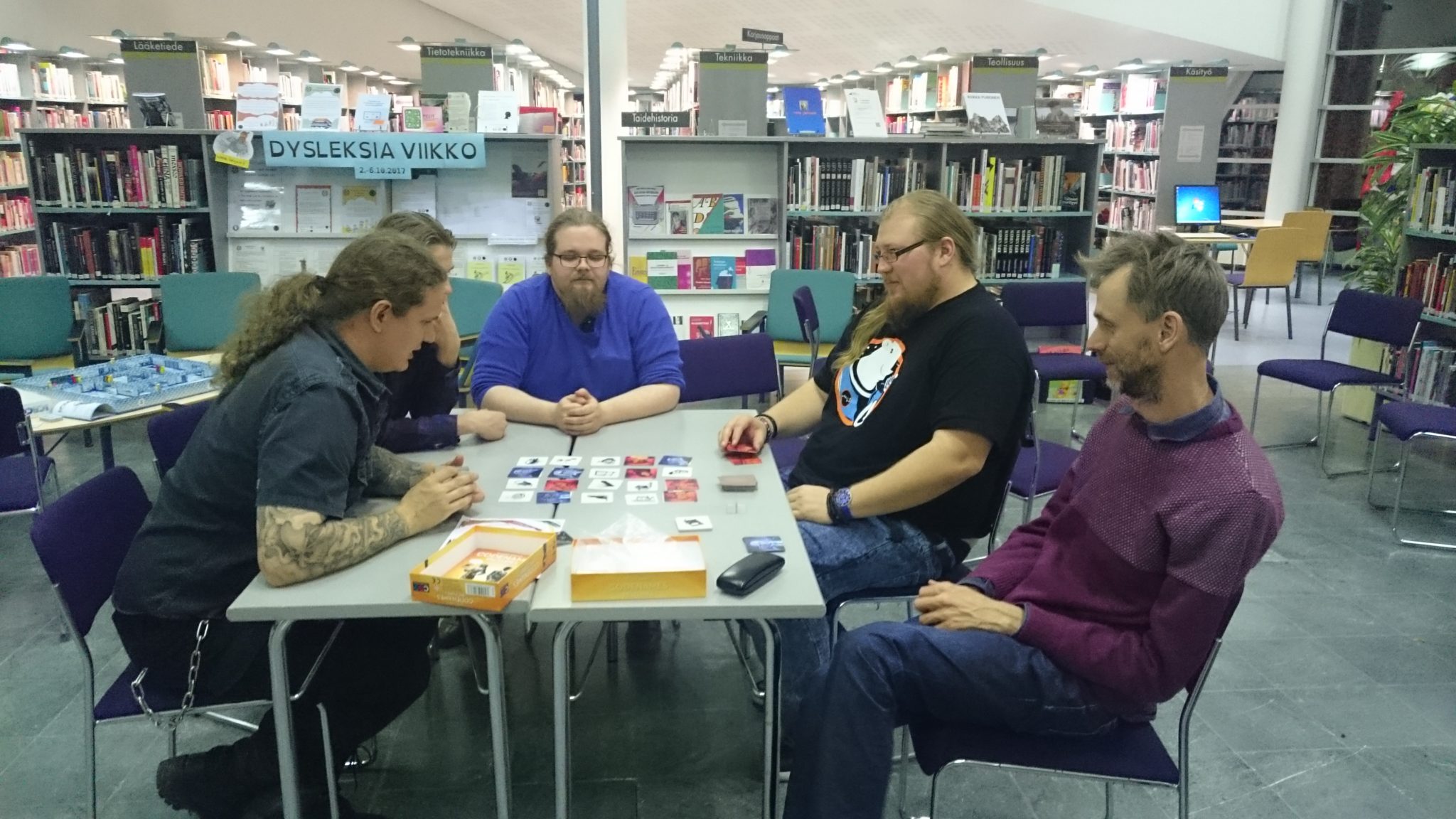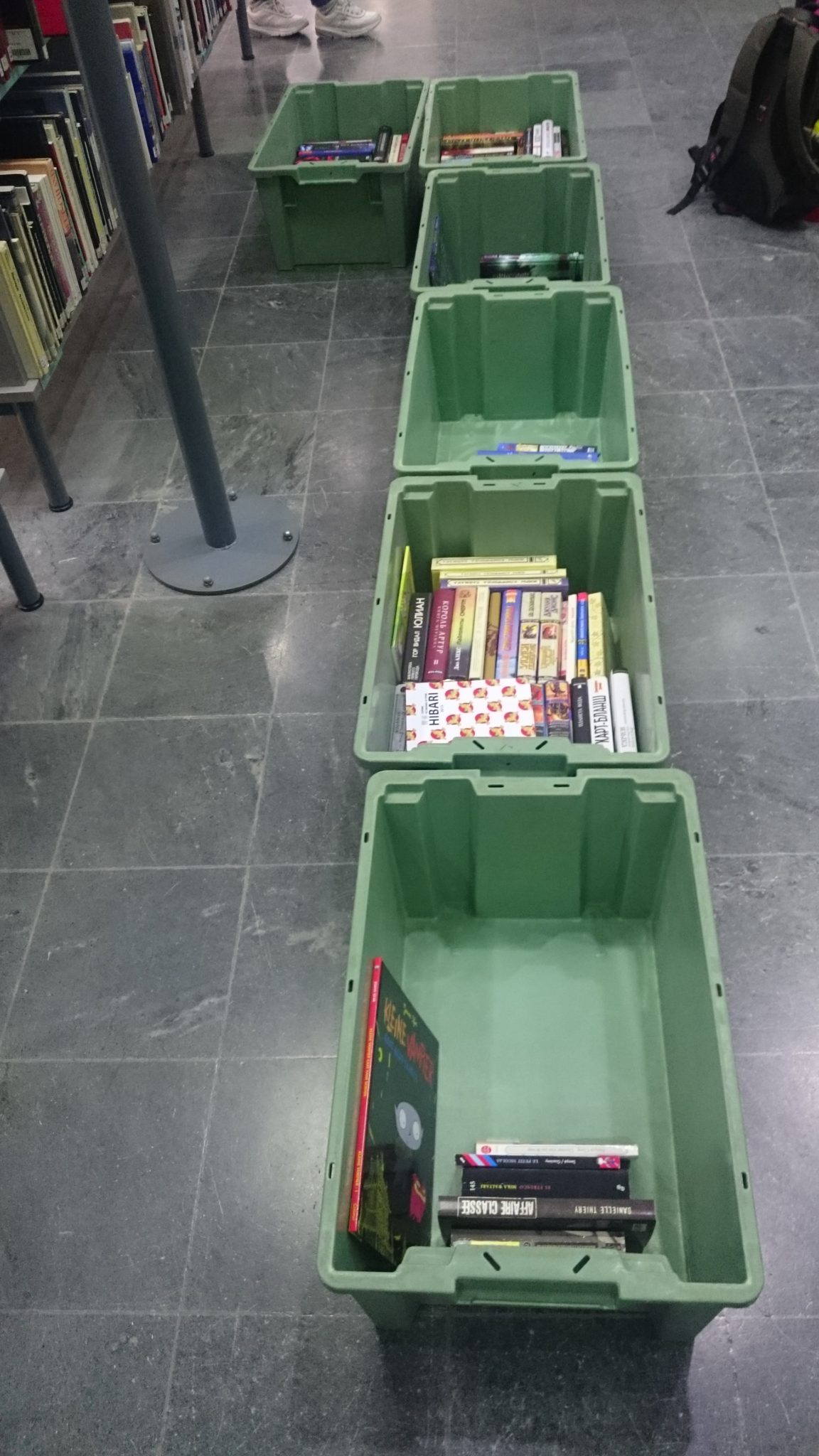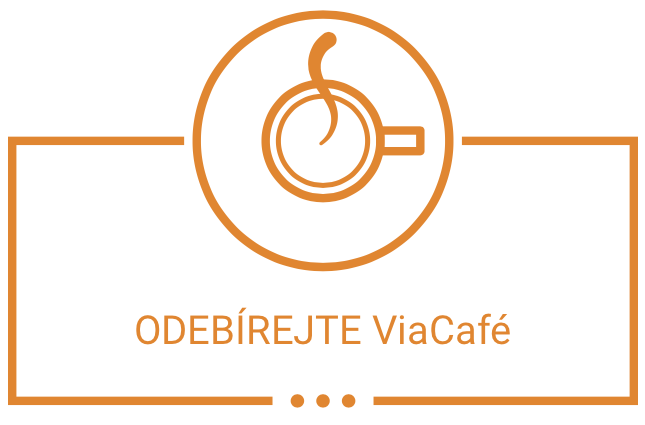Ulla Pötsönen is an alumnus of Via’s international program, ViabilityNet 3.0. Although Ulla is originally from Finland, she has been living in the Czech Republic for some time. Back in Finland, she played a key role in making her local library in Joensuu more community oriented. We asked her how she did it.

When I was permanently residing in Finland, I was part of the majority, I had my community around me and I took it for granted. After I moved to Prague, I realized that I need to have community building and networks around me. I found myself desperately looking for ways to do things that are meaningful to me even though I didn’t speak the language, know how to find groups of people doing something, how to get involved if I have time or volunteer. I was looking for community, and I still am, a bit. Then I had a chance to go back to Finland and I realized it’s my obligation [to build community] if I work for a public institution – in my case a library. A library is kind of doing that – providing space and facilities but not concentrating on the community, even though it serves the community. I realized that I have to do something to meet the community within the community and share what I had learned about what people need when they are new to a place. In the past I had moved from place to place, but only within Finland, and the environment is the same everywhere (you know the structure). If you move from another country or a different cultural background, you look for other people and possibilities and you want to feel meaningful if you are not working yet.
When I returned to the things that had been important to me in the past, such as promotion of literature, etc., they seemed less and less important while building community and participation and involvement of people became more important, minute by minute. It also caused a problem in the library because it is not the main task of the institution. Libraries are burdened with a lot of tasks and community work is just one of them, so it depends on specific employees. I know some Finnish libraries which have really dived into the issue and see that they need to strengthen their sense of belonging as soon as possible, because it is for the long run. I had to provide regular library services and partly do community work outside of working hours. I also wanted to educate the library staff about community work.

What were results of your community activities?
A platform for people to meet one another was created – through meeting with other actors, organising events, regular appearances and communication on social media, plus strengthening the position of the library as a meeting point and information source.
A secondary result was raising awareness. So even less active people who didn’t take part in the events became aware of the changes because there was a lot of communication. Even the passive receivers became aware that there are ways to be active and make your voice heard in the community. The communication was in simple Finnish, English and sometimes Russian and Arabic to reach as large an audience as possible. There was both direct communication and marketing but also a lot of communication with key people (Finnish language teachers, people working with exchange students or asylum seekers, active members of language minorities). This helped the authorities and key persons become aware of the library’s active role.

Did you observe any changes in your community over the course of the year?
There was already a network for people and associations/organisations working with newcomers in the community. Now the structure of the network is clearer and the library has become an essential part of it. Library staff are now invited to meetings about other issues (migrants, NGOs). Establishing and maintaining a network takes time and is a lot of work. I am hoping the library will see the relevance of continuing the work.
Several library staff members already have a better understanding of the community and the people around us, who the actors/partners are and what is going on in the city. When more people come to the library for events, it also raises interest about what is happening.

How common is it for Finnish people to be engaged citizens?
Finland is a very individualistic country. But ten years ago, there was a re-awakening of the need for community because people realized how lonely they are. We feel that we have lost the family and we search for communities somewhere else. Even though we are super individualistic, there is an abundance of associations: hobbies such as sports, outdoor activities, political, other value–based groups and many, many others. Young adults are not so actively involved but older people and senior citizens are, and many kids are in sport associations. So plenty of those types of communities exist. I am a member of three outdoor associations which organise hiking trips and rent hiking gear or cabins in the wilderness. For foreigners it’s not so easy to become active in an association because they don’t know how to find these groups and people speak either Finnish or Swedish.
You are Finnish but know Czech culture quite well since you have lived in Prague. What are the main differences in approaches to local community life?
In the beginning I was afraid that people would not respond well to me since I do not speak Czech. I didn’t know what is okay. I haven’t managed to dig very deep and so far I am mainly in an expat bubble but I hope to go deeper. All the things that I used to know in Finland are here as well (such as plogging, shared economy). It is almost the same phase as Finland. You are ahead in clothes swapping – it is so popular in the Czech Republic, but it is not very popular in Finland.
Are you planning any follow up? How was the transition of leaving the library to go back to the Czech Republic?
I handed it over to colleagues and when I am there, I am happy to meet my ex-colleagues and hear what they are planning now. I know that there are fewer activities in the library now but 30% of one staff member’s time is dedicated to community work. She has time to meet groups of people, networking, etc. It is a really big step taken by the head of the library. We worked together so I know that she wants to keep up and she also sees the importance of community work. But in the long-term it cannot be only one person fighting for it within the institution.



